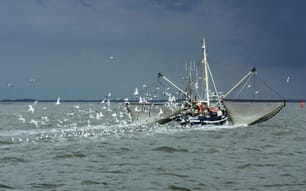For Commissioner Damanaki, this proposal is both timely and beneficial.
"Marine Knowledge 2020 is a direct response to the call by marine data users for the EU to step in. We have therefore come up with this comprehensive proposal, which has three basic objectives.
"Firstly, by freeing bottlenecks and reducing operational costs for those who use marine data, we can help private industry compete in the global economy and meet the challenge of sustainability; we can improve the quality of public decision-making at all levels; and we can strengthen marine scientific research.
"Secondly, by providing wider access to quality-checked, rapidly available coherent marine data, we can step up competition and innovation amongst users. And thirdly, by reducing uncertainty in knowledge of the oceans and the seas, we can provide a sounder basis for managing future changes. This will provide businesses and public bodies with the means to meet the crucial aims of our Europe2020 strategy."
Developments in fishing intensity, coastal development, navigational practices or offshore energy infrastructure, as well as an increasing concentration of greenhouse gases in the atmosphere, are having an accelerating impact on the two thirds of this planet that are sea or ocean. The changes resulting from these human activities superimpose on the natural rhythms and cycles of the marine world.
Since ocean circulation is the primary driver for the mildness or severity of Europe's seasons, the impact of these changes is felt beyond our coastal communities, by those who live and work far inland. At the same time, advances in technology are offering new opportunities to harness sustainably and responsibly the sea's rich and largely unexplored resources for the benefit of mankind.
To understand these changes, forecast future developments and exploit these opportunities we need to observe the seas' current and past behaviour. European public bodies are well aware of this and between them are spending more than one billion euro every year on collecting marine data for purposes as diverse as ensuring safe marine navigation, protecting coastlines, prospecting for new biomaterials or assessing fish stocks. However, a recent public consultation amongst those who require such data to do their jobs in industry, academia and public services confirmed that these data are not fit for purpose.
Users find it hard to discover what data already exists. There are restrictions on access and on the uses to which the data can be put. Fragmented standards, formats and nomenclature, lack of information on precision and accuracy, the pricing policy of some providers and insufficient temporal or spatial resolution are further barriers. The opportunity to develop innovative new products and services based on these data is therefore lost. The vast majority of those working in the field believe that only action at an EU level can allow those whose business rely on readily available marine data to meet the "Europe 2020" goals for smart and sustainable growth.
The Commission's proposal shows how an integrated approach harnessing a range of legal instruments is progressively building an architecture whereby observations are collected and assembled to provide complete sea-basin data layers that meet the needs of stakeholders.
Link to the proposal: http://ec.europa.eu/maritimeaffairs/.
Understanding Our Seas And Oceans
EU - European Maritime Affairs and Fisheries Commissioner Maria Damanaki has unveiled the Commission's Marine Knowledge 2020 proposal to unlock the potential of Europe's marine knowledge. This three-pronged approach seeks primarily to enhance our understanding of Europe's seas and oceans, make using marine data easier and less costly and foster competitiveness among marine data users.

